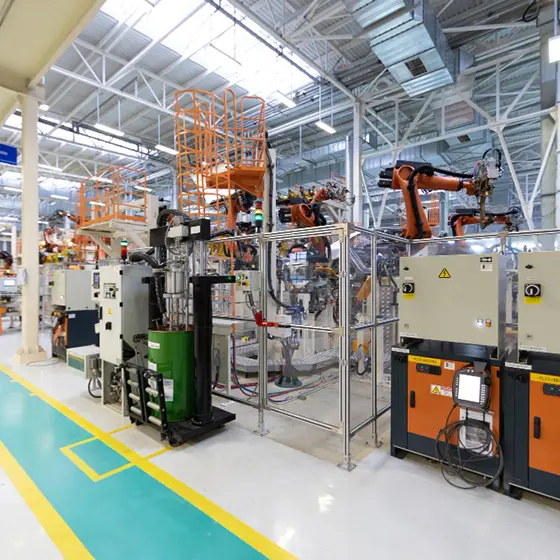
ISI Certification
In India, products such as electrical appliances, toys, safety gear, LPG valves, tyres, tubes, and Portland cement must carry the ISI mark before they can be sold. For most other items, however, using the ISI mark is optional.



What is ISI Mark?
The ISI mark serves as India’s leading certification standard, guaranteeing that products comply with strict safety and quality requirements before they are made available to consumers.
The ISI mark, governed under Scheme-I of Schedule-II, is a certification provided for various domestic and industrial products in India, excluding electronics and IT goods. When this mark appears on a product, it signifies that the item complies with the relevant Indian Standard.
Trusted Quality
Every product goes through strict testing and evaluation to make sure it matches—or even surpasses—the standards set by the Bureau of Indian Standards.
Built for Your Confidence
The ISI mark reassures buyers that the product is dependable, safe to use, and performs as expected.
Wider Market Reach
ISI certification helps businesses expand their presence by meeting regulatory norms and gaining broader acceptance.
In India, certain items such as electrical appliances, toys, safety equipment, LPG valves, tyres, tubes, and Portland cement must carry the ISI mark before they can be sold. For most other products, the certification is optional. However, having the ISI mark not only gives manufacturers an advantage in the market but also reassures customers about the product’s quality and safety.
Products Requiring Certification
Items in this category must have ISI approval before being allowed for sale in India.
Electrical Appliances
ElectronicsSafety Glasses
SafetyLPG Valves
IndustrialTyres & Tubes
AutomotivePortland Cement
ConstructionToys
ConsumerTypes of Certification
Select the certification route that best fits your production setup and specific needs.
Domestic Manufacturers
For manufacturers located in India
Standard Process
A detailed assessment that includes complete documentation along with all necessary testing.
Fast-Track Process
A quicker route designed for eligible manufacturers, requiring minimal documentation.
Foreign Manufacturers
For Overseas Manufacturers
Global Certification
A dedicated route for international manufacturers aiming to obtain ISI approval.
International Certification
Specialized pathway for overseas manufacturers seeking ISI certification
ISI License Process
Six essential steps to obtain your ISI certification

Document Preparation
Collect all necessary paperwork and get your application materials ready.

Application Submission
Submit your application along with the required supporting documents.

Inspection Scheduling
Arrange and plan the on-site factory inspection.

Factory Audit
An on-site evaluation is conducted to verify compliance and processes.

Product Testing
Independent lab testing ensures product quality and safety.

License Approval
Final review and official issuance of the ISI license.

Document Preparation
Collect all necessary paperwork and get your application materials ready.

Application Submission
Submit your application along with the required supporting documents.

Inspection Scheduling
Arrange and plan the on-site factory inspection.

Factory Audit
An on-site evaluation is conducted to verify compliance and processes.

Product Testing
Independent lab testing ensures product quality and safety.

License Approval
Final review and official issuance of the ISI license.
Need Help with Your Application?
Our specialists are here to walk you through every stage of the certification journey.
BIS-ISI Certification
Requirements for Obtaining a Domestic License
Eligibility Criteria
Indian-based manufacturers are eligible to apply for a domestic license, provided the following conditions are fulfilled before application submission.
Checklist of Requirements
7 key conditions that must be met
The product must comply with the relevant Indian Standard.
The factory should have a complete in-house manufacturing setup.
An in-house testing facility must be available for the specific Indian Standard being applied for, though limited outsourcing is permitted.
The manufacturer’s testing lab should have qualified and skilled quality control personnel to conduct tests as per the applicable Indian Standard.
The applicant must agree to follow the Scheme of Testing & Inspection (STI).
The annual marking fee, as determined by the competent authority, must be paid.
A separate application must be filed for each product/Indian Standard and for every factory location.
Important Reminder
A separate application must be submitted for every product, Indian Standard, and factory location. Be prepared to apply individually if multiple certifications are needed.
Frequently Asked Questions
ISI Certification is a quality standard mark issued by the Bureau of Indian Standards (BIS). It ensures that a product complies with Indian safety, reliability, and performance benchmarks. For consumers, it builds trust, while for manufacturers, it provides market credibility and compliance with regulations.
No. ISI Certification is mandatory only for certain products such as electrical appliances, toys, LPG valves, tyres, tubes, and cement, among others. For most other products, it is voluntary but highly recommended for gaining consumer confidence and wider market acceptance.
Both Indian and foreign manufacturers can apply for ISI Certification. Domestic manufacturers apply under the regular process, while overseas manufacturers follow a separate certification pathway designed for international applicants.
The process includes document preparation, application submission, factory inspection, product testing in a BIS-recognized lab, and final license approval. Once approved, the manufacturer can use the ISI mark on their certified products.
The time frame depends on the type of process (standard or simplified), readiness of documentation, and successful completion of testing and inspection. Typically, it can take anywhere between 4 to 8 weeks for approval, provided all requirements are met.
The cost of ISI Certification includes application fees, product testing charges, inspection expenses, and the annual marking fee decided by BIS. The total amount may vary depending on the product type, number of applications, and factory location.